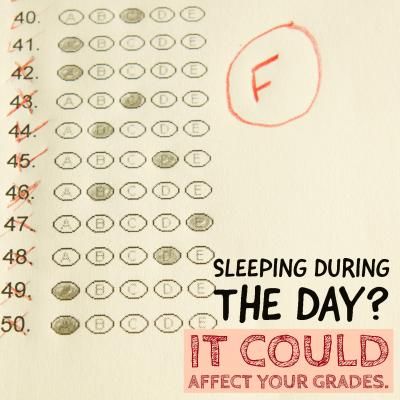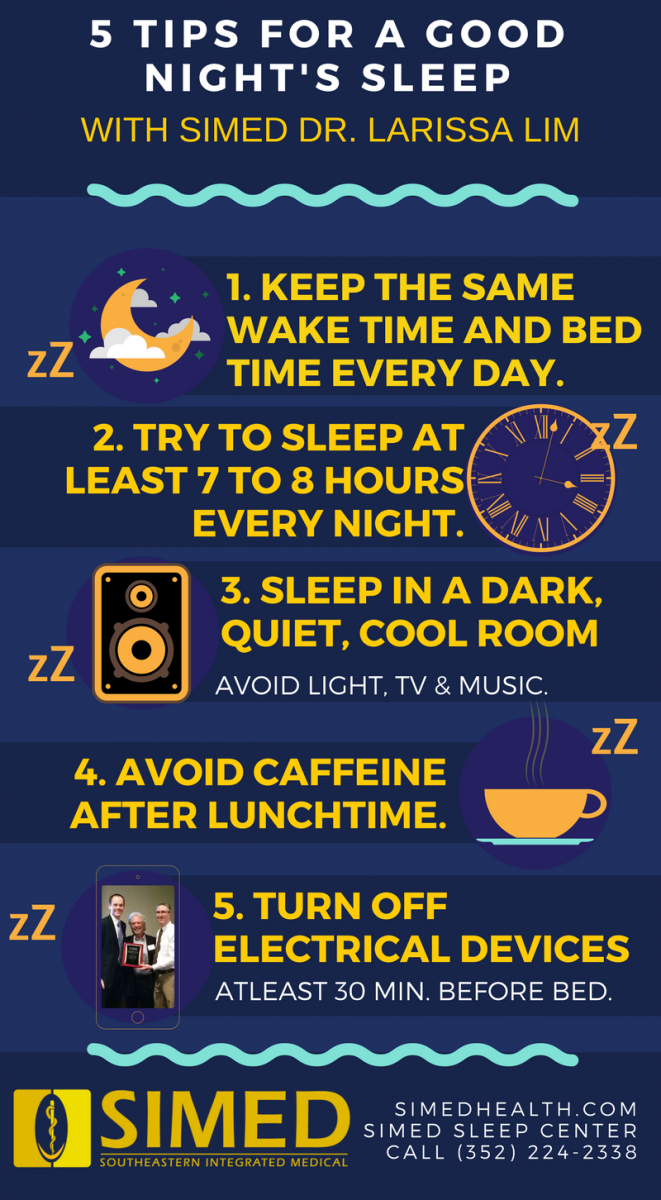
Students who stay up late each night and sleep during the day might be jeopardizing their grades.
A June sleep study published in Scientific Reports found there was a connection between irregular sleep patterns and poor academic performance.
Dr. Larissa Lim, a practicing primary care and sleep medicine physician at SIMED, shared information on the study and advice on how to break bad sleep habits and improve one’s health.
The study found that students with irregular sleep habits had later bedtimes and took more daytime naps, even though they slept the same amount of time as regular sleepers.
Sleeping during the day affects light exposure which could misalign the circadian system. The circadian system regulates when people feel alert or ready to sleep, and its misalignment could result in adverse effects on both cognitive function and health.
Students who slept into the day also had delayed onset of secretion of melatonin (a hormone secreted by the pineal gland that regulates the internal body clock), resulting in sleep/wake cycles equivalent to traveling two to three time zones west compared to normal sleepers.
Students who stayed up later and slept during the day were found to have similar patterns of sleep to blind people who have abnormal sleep schedules because they can’t see light and don’t get the benefit of circadian rhythm.
While it was found that the sleepers who had later bedtimes performed poorer academically, it was not confirmed sleeping schedule was the cause.
Here are Dr. Lim’s tips to help you sleep:

1. Keep the same bedtime and wake-up time every day.
Going to bed at the same time every night and waking up at the same time every day will stabilize your circadian rhythm so you naturally become tired at the same time every night.
2. Try to sleep for at least 7 to 8 hours every night.
Getting enough sleep is important for a healthy lifestyle.
3. Sleep in a dark, quiet and cool room. Avoid stimuli such as light, TV and music.
When it’s dark, your body secretes melatonin which leads you to sleep. If it’s light out, your body might not produce melatonin as it won’t be sure whether its night or day. Noises can wake you from sleep especially in early stages, and people tend to sleep better when its cooler.
4. Avoid caffeine after lunchtime.
Caffeine could affect the secretion of melatonin and make it more difficult to get to sleep.
5. Turn off electrical devices at least 30 minutes before bedtime.
Studies have shown that small electronic devices can emit enough light to trick the brain into staying alert.
If you’re having trouble sleeping, you can refer yourself to one of SIMED’s board certified sleep physicians. Simply call 352-224-2338 or schedule an appointment online. You can also ask your physician to generate a specialty referral to SIMED Sleep Medicine.
To schedule an appointment with Dr. Lim in primary care or for sleep medicine, call 352-332-7770 or request an appointment online.